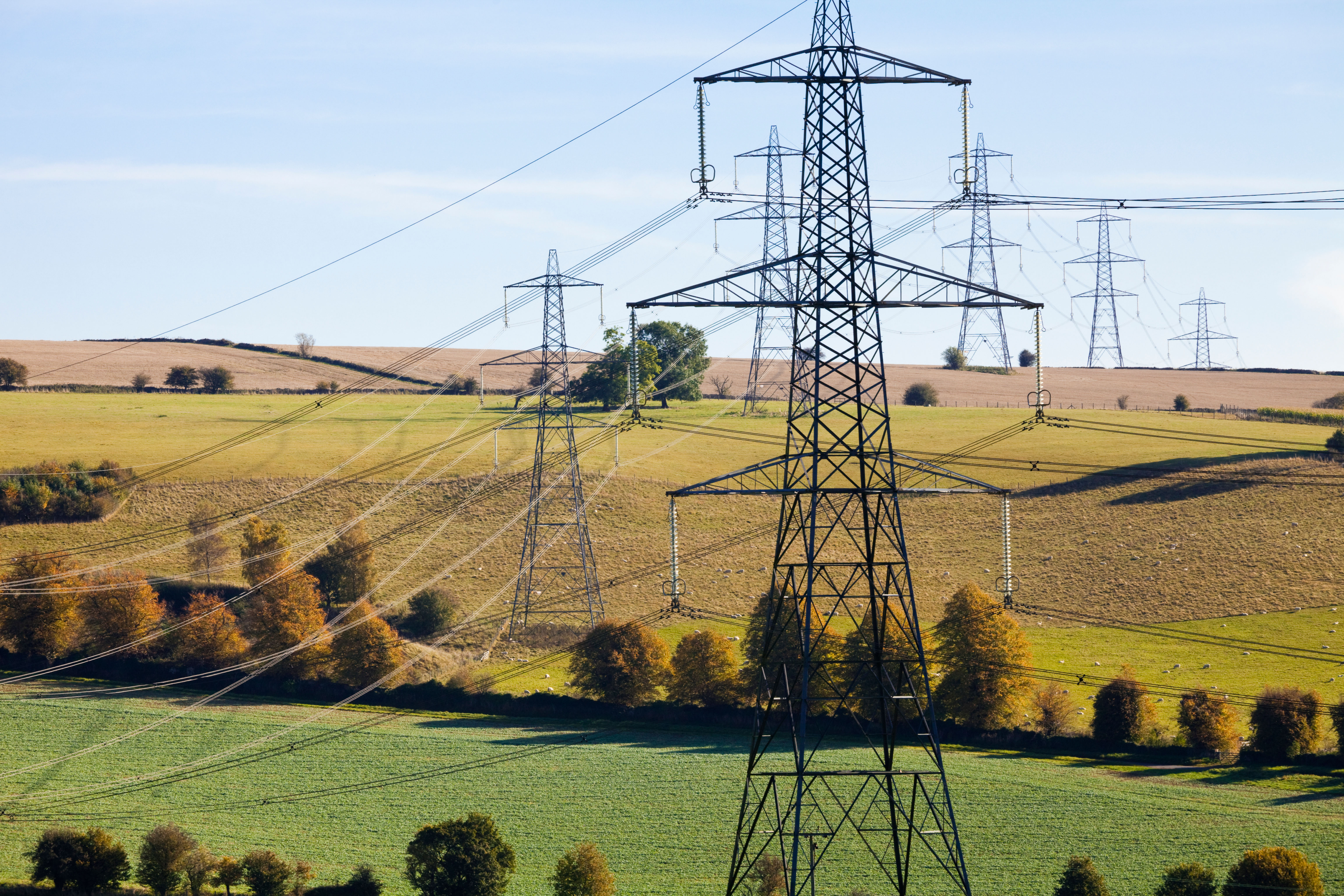Simon Jenkins: 1,000 miles of giant pylons 'would be the most intrusive invasion of the nation’s rural landscape since the Second World War'
The Government’s plan to cover the countryside in ugly pylons with seemingly no regard for aesthetics must be vigorously challenged


Exquisite houses, the beauty of Nature, and how to get the most from your life, straight to your inbox.
You are now subscribed
Your newsletter sign-up was successful
At first sight, the prospect of 1,000 miles of giant pylons covering the length and breadth of Britain beggars belief. It would be the most intrusive invasion of the nation’s rural landscape since the Second World War. It should be subject to a searching audit and challenge.
The pylons, in their tens of thousands, are 400kV colossi the height of Nelson’s Column. They are to link the wind turbines of Scotland and the North Sea with London and the South-East. They will march south to the Lake District, cross Snowdonia as far as the Cambrian Mountains and spread from the Lincolnshire Wolds through East Anglia to the Thames. Occasionally, the cables will be buried, as in bits of the Peak District and Snowdonia, but the generality of Britain’s countryside is seen as being of no scenic value. It is up for grabs by a private company, the National Grid.
The Government’s current war on planning — Sir Keir Starmer’s ‘build baby build’ — treats those now defending rural Britain as fit for ridicule. Hardly a week passes but the Prime Minister flexes his muscles, smirks and derides them as blockers, nimbys and enemies of growth. His treatment of a concern for the environment as mere self-interest is the measure of this Government’s philistinism.
Although I began as a sceptic of global-warming hysteria, I now accept that reducing the world’s reliance on fossil fuels is necessary and urgent. However, the whole world must be involved. If serious polluters are not persuaded, then Britain’s net-zero campaign is a gesture. For years, it has been subsidising and sending energy prices soaring for solar, wind and nuclear. The cost of electricity per kilowatt hour last year was 26p in Britain, against 18p in France, 8p in Sweden and 6.5p in America.
Growth has been crippled, yet the impact on climate change is minimal. If the purpose of the new grid is to save the planet’s environment, it seems odd to spoil Britain’s share of it in the process.
'There is no need for pylons. They are a political choice. Cables can go underground or under the sea'
There is no need for pylons. They are a political choice. Cables can go underground or under the sea. They are already buried in cities, as they frequently are in the countryside in places such as Germany, The Netherlands and Switzerland. An island such as Britain could efficiently take many of them under water.
The question is how much are we prepared to spend on burial, which, in turn, means how much do we care? There are places where even the National Grid admits pylons would look horrific, such as Constable’s Dedham Vale in Suffolk, but what of the countryside in general? These structures will be visible from miles around, looming amid the hills and dales.
Exquisite houses, the beauty of Nature, and how to get the most from your life, straight to your inbox.
The Government’s generous hint that it might subsidise the energy bills of residents near pylons is proof that it accepts their ugliness. No compensation is offered to the rest of the nation — walkers, cyclists, motorists, tourists — who might also delight in the countryside. I am no nimby — I do not live in the countryside — but just as I deplore the loss of distant rainforests or coral reefs, so I can deplore private companies that profit from destroying landscapes I love.
The cost of burying the new grid is much debated. The initial network, supposedly to be built by 2030, is to cost £54 billion. Burial undoubtedly costs more. The price of putting Germany’s grid overhead has been put at €285 billion (£237bn); burying it would be €320 billion (£266bn), or about 12% more. For some reason, Britain’s National Grid claims that grounding its cables would cost more than five times as much. Grounding cables over 67 miles from Norwich to Essex would cost an extra £7.9 billion, which seems exorbitant, although it is little more than might have been saved by not bringing HS2 into Euston in London.
Britain’s infrastructure spending, as HS2 is demonstrating, is crazily out of control. The new Hinkley Point nuclear plant in Somerset is now estimated to cost almost £50 billion — twice its original estimate. These sums would appear beyond any audited value for money, but at least in the case of burying cables, we would know the value: the avoidance of a devastating visual pollution.
'These swathes are, to me, the true wonder of Britain. Sir Keir’s brutalism shows them to be suddenly fragile. They must not be destroyed. Their salvation has never been more urgent'
There remains the task of agreeing on how to define this value. It would involve spending the public’s money in some shape or form and the landscape qualities being protected need to be justified. Of course, this can be subjective, but it is the sign of a civilised culture that it can articulate such qualities and win public consent to them.
Over the past half century, historic buildings and districts in Britain’s towns and cities have been appreciated, listed and conserved. This great regulation has saved the beauty invested in Britain’s built environment from mindless destruction. We already do the same for landscapes in national parks and a few other areas of ‘outstanding natural beauty’.
We must now turn our attention to the rest. The countryside is being threatened by a Government that actually boasts its desecration. It must be assessed for its scenic value and composition — its contours, trees, meadows and floral diversity — because when these are gone, they are gone forever. Some areas will need greater levels of protection than others; they will need grading and listing. Such grading would assist in defining the ‘public goods’ that farmers are now being subsidised to protect. It would direct new development to areas that are considered of low landscape value and it would certainly dictate where pylons should be allowed or buried.
If other countries can perform this civilised task, so, surely, can Britain. Thanks to town — and country — planning since the Second World War, swathes of the countryside remain remarkably unspoilt. These swathes are, to me, the true wonder of Britain. Sir Keir’s brutalism shows them to be suddenly fragile. They must not be destroyed. Their salvation has never been more urgent.
Simon Jenkins is a journalist and author who began his career at Country Life before going on to serve as the political editor of The Economist and editor of The Times.
